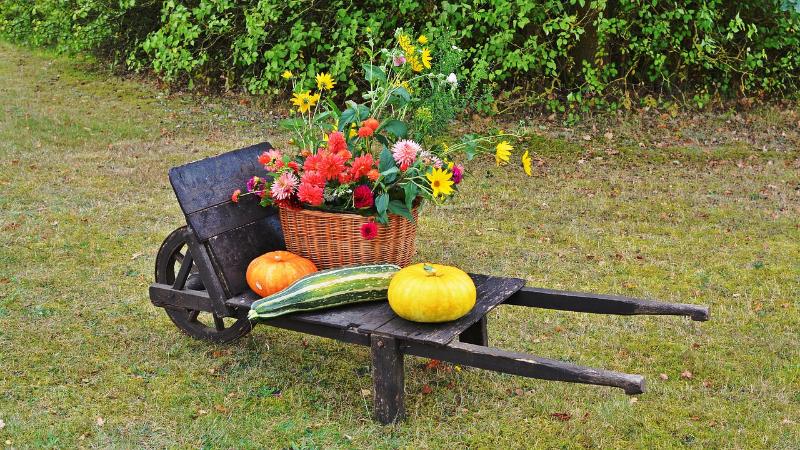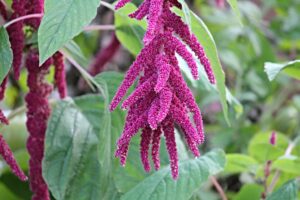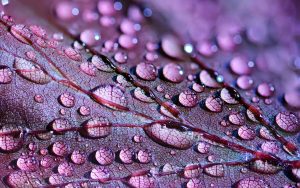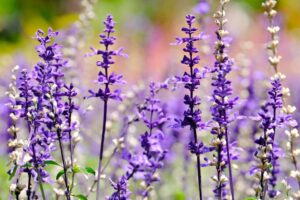Many different kinds of flowers can be planted with vegetables to help improve the quality of your garden. The best companion flowers for a vegetable garden protect against pests and attract beneficial insects for pollination.
Planting a variety of these companion plants will keep your vegetable garden healthy and productive all year long.
Best Companion Flowers for Vegetable Garden
Marigolds
Marigolds (Buy Seeds Online) are one of the best companion flowers for a vegetable garden because they offer a wide range of pest control benefits, including repelling aphids, cabbage worms, squash bugs, and whiteflies. They also deter root nematodes when you let their roots decay in your garden at the end of the growing season.
Nasturtium
Nasturtiums (Buy Seeds Online) offer a great way to protect your garden from these pests while also providing an edible flower that you can add to salads or use in cooking. They will attract aphids away from other plants and repel black flies at the same time. You can even eat their flowers, which taste like spicy watercress. So if you’re looking for a versatile companion flower to plant in your veggie garden, this is it.
Sweet Peas (Lathyrus odoratus)
Sweet Pea Vines (Buy Seeds Online) can grow over 10 feet long with deep green leaves that add color to a landscape while climbing up trellises or fences for support. The vines produce fragrant flowers in shades of pink, purple, blue, and red which fill rooms with their fragrance when cut fresh from the garden. And their flowers are great at attracting butterflies, bumblebees, honeybees, and hummingbirds into your vegetable garden all season long.
Tansy
Tansy (Buy Seeds Online) is an easy-to-grow, inexpensive flower that repels many common bugs. It will also attract beneficial insects like lacewings and ladybugs. Not only does it help deter harmful insects from eating your plants, but it’s also beautiful when in bloom.
Tansy is one of the most effective companion flowers for a vegetable garden, but it’s also quite invasive in some areas.
So how do you plant tansy without letting it take over your entire yard?
Plant tansy in containers and use them strategically around vulnerable crops like asparagus, beans, cabbage, carrot, celery, corn, lettuce, peas, pepper, potato, and tomato plants.
An added benefit of growing tansy this way is that you can easily move them around and keep them from spreading into other parts of your yard or garden.
Petunias
Petunias (Buy Seeds Online) have been proven to be the best companion flower for asparagus because they naturally repel asparagus beetles from your vegetable patch. If you want to grow delicious asparagus without having to worry about getting rid of those nasty bugs, plant petunias around your crops. They’ll not only deter the asparagus beetles, but they will also add color and beauty to any garden.
Chamomile
Chamomile (Buy Seeds Online) is a great addition to your vegetable garden because it improves growth and flavor in onions, carrots, lettuce, celery, and other vegetables. It also has antibacterial properties that help protect your crops from pests and diseases.
Bee Balm
Bee Balm (Buy Seeds Online) is used to attract bees and butterflies, and it’s also an excellent companion plant for your vegetable garden. This herbaceous perennial grows 3-4 feet tall with fragrant foliage and large clusters of small flowers on top of stems that grow up from the center of each rosette of leaves. The best part is, you can cut these gorgeous blooms to use in bouquets or just enjoy them as they last for weeks.
GARDEN TIP: Plant bee balm between your tomato plants because this herb will improve the growth and flavor of tomatoes while attracting more pollinators into your garden.
Borage – Borago officianalis
Borage (Buy Seeds Online) is a beautiful, edible flower that attracts bees and other pollinating insects to your garden. You can grow borage in a pot on your deck or patio so you have fresh flowers for salads and desserts all summer long. You can even keep some going indoors during the winter months by bringing them inside when they start to get frosty outside.
Calendula – Calendula officinalis
Calendula (Buy Seeds Online) is one of the most versatile flowers that you can plant in a vegetable garden because it repels asparagus beetles, tomato hornworms, aphids, and Colorado potato beetles while attracting bees for pollination.
You can also use calendula as a trap crop for aphids or even bring some inside for cut flower arrangements. If you’re looking for something bright and beautiful to add color to your vegetable garden then calendula should be on your list of must-have companion flowers.
Zinnia
Zinnias (Buy Seeds Online) are one of the best companion flowers for vegetable gardens because they attract ladybugs who eat unwanted bugs like cabbage flies. They also look beautiful in any flower bed so there’s no need to sacrifice aesthetics for function. Plus, if you plant zinnias around other veggies they’ can help repel harmful insects from attacking them too.
Cosmos (Cosmos bipinnatus)
Cosmos (Buy Seeds Online) are the perfect companion plant for your vegetable garden because they attract hoverflies that eat aphids, lacewings that eat soft-bodied insects like thrips and whiteflies, as well as bees and other pollinators. The cosmos flower also attracts birds who love their seeds. This makes it a win-win situation for organic gardening enthusiasts.
Lavender
Lavender (Buy Seeds Online) is the perfect companion flower for any vegetable garden because it keeps away common pests like aphids, cabbage moths, whiteflies, and even ticks. The scent also deters deer from grazing on your crops or nibbling them as they grow up through the soil. And it’s easy to plant lavender around your entire garden bed so all of your plants will stay pest-free. Best of all, this herb has beautiful purple flowers that look great in any landscape design.
Sunflower
Sunflowers (Buy Seeds Online) pair well with cucumbers and pole beans: these two vegetables grow vertically and will need something sturdy to climb on. Sunflowers help provide that support while attracting pollinators at the same time. Plus, their large yellow flowers look lovely when paired with other veggies in an edible landscape design.
Cornflower – Bachelor’s Button
Bachelor Buttons (Buy Seeds Online) can be planted in fall or early spring and will continue to bloom all season long. This plant attracts bees, butterflies, hummingbirds, and other beneficial insects which helps ensure successful pollination of nearby vegetables and fruits. It also grows quickly so you can plant them in August or September and still have plenty of time to enjoy them before the first frost comes along.
Poppy
Poppies (Buy Seeds Online) are an amazing flower for any garden. They are easy to grow and provide great benefits for pollinators like bees and butterflies. Not only do these flowers look beautiful when blooming, but they also have many culinary and medicinal uses as well.
Poached Egg Plant – Limnanthes Douglasii
Poached Egg Plants (Buy Seeds Online) have been shown to attract hoverflies, which prey on aphids and other small insects. For this reason alone it’s worth growing poached egg plants in your vegetable garden. But there are more benefits. The flowers also attract bees and butterflies, so you’ll get pollination as well as pest control. And it grows easily without much care or maintenance required – just water regularly and let it spread where you want it to go.
Crimson Clover (Trifolium incarnatum)
Crimson Clover (Buy Seeds Online) is a flowering legume that produces bright red florets. It’s known as one of the best companion plants because it adds nitrogen to the soil and attracts bees, which help pollinate nearby plants, and it also supports large spider populations which will control pests like aphids and cabbage worms – without using any pesticides. The flowers are edible too (though we wouldn’t recommend eating them raw), and this plant is even more valuable than most companion plants since its nectar can be used to make honey.






















